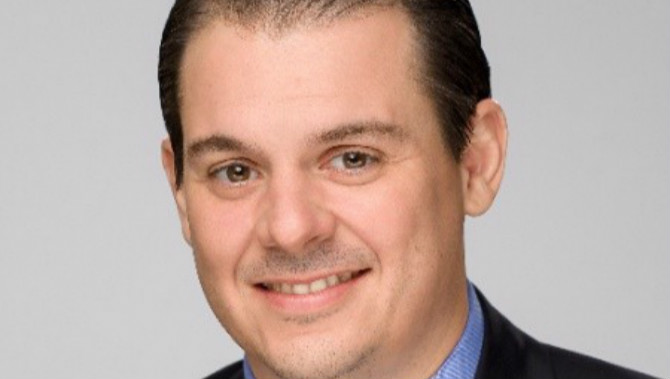
The Coronavirus (COVID19) pandemic is having a significant impact on the maritime sectors, the shipping companies, maritime organizations and other stakeholders should take rapid and extra-ordinary measures to ensure the maritime industry is able to continue functioning in safety and efficient manner as possible.
The Liberian Registry is the world's second largest registry, which has taken a series of safety and innovative measures to support the clients in the global.
"The COVID-19 has upended the world. However, I am pleased to say that we have not missed a beat here at the registry…our entire team is safe and healthy, and have been able to continue the support 24/7 that has led us to be the fastest growing flag in the world for the past 18 months. As a matter of fact, an owner of ours just the other day told me he didn't know we had any of our offices on remote/telework because the service was just as prompt as before COVID. When this awful disease was starting over in Asia in January, we had advanced notice of it thanks to our wonderful team in China, and we were able to work closely to support their needs as they adjusted to the local COVID countermeasures. This gave us the experience we needed to then scale this globally when it came to it a few months later in Europe and America. We took care of the health of our team, ensured seamless connectivity and remote working capabilities, and then went into implementing the measures which are the industry needed in order to continue to function without major fundamental disruption as it has."Said Alfonso Castillero, COO of the Liberian International Ship and Corporate Registry (LISCR).
"Despite the global pandemic, ship and crew safety was our main goal and we had to be able to adapt to the challenges and ensure that the crews sailing Liberian flagged ships had all the support and responsiveness from their flag State that they should. We are proud to have really become the industry leader in the Ship Registries dealing with the challenges of COVID."He added.
Xinde Marine News asked Alfonso Castillero for details and to explain what measures to take to support the shipowners, operators and other stakeholders in a safety and efficient manner.
Launch a Simplified Vessel Registration Process.
Alfonso Castillero: We are continuously improving, and simplifying our Registrations Procedures was done before COVID. This turned out to be very fortuitous for us because when COVID hit, having easier and more streamlined measures meant minimal disruption to the Registration process, which can be a cumbersome and bureaucratic process if not approached in a common-sense way and improved. We cut the fat, improved the system, and made this much easier for flagging ships with Liberia.
Remote Mortgage Recordings and Electronic Closings.
Alfonso Castillero:Remote closings have been an enormous advance. We were the very first flag state in the world to implement this. When COVID hit the major financial centers of the world where the majority of closings take place we knew we had to put into place a set of counter-measures that leverages the technology we have at our use, as well as following the applicable laws associated with these transactions. We had phenomenal support from the Liberian Government in making this possible. This was implemented before many new it would even be needed, and it had an immediate positive impact. No closings were at all delayed by the lock-down measures that limited the normal in-person process. This was truly amazing, and we see it now replicated by other Administrations.
Remote ship audits and inspections.
Alfonso Castillero: At the same time as we were implementing the remote closing measures, we knew that the same limitations would apply to inspections with restrictions on auditors/inspectors attending vessels due to the lockdowns. We shifted our resources internally to be able to have our maritime operations department implement this contingency, and ensure they are carried out in an effective way. This was another measure in which we were the first flag State to implement it and is now becoming standard amongst others. I mention this only to show that it is imperative to have a flag State that has the experience, the foresight, and the ability to adapt to the situations of the real world in which we live. This is contrasted to many other Administrations which had to almost close down entirely as the bureaucratic institutions that run them mandated closures and reductions—which led to the detriment of safety and support of vessels and seafarers.
To help vessels in compliance with the requirements and prevent detention.
Alfonso Castillero: Our dynamic Detention Prevention Program is groundbreaking in normal times, and is especially valuable now under the restriction in place due to COVID around the world. We have an accurate profile of our entire fleet and can work with our owners and operators to ensure their vessels are fully compliant and do not encounter any undue delay or issues when calling into certain jurisdictions. This is close support we provide, and a much-needed additional safety oversight of the vessels. We want vessels to be sailing on schedule, without delay, and as fully compliant with the relevant international requirements as possible. We then can leverage our experienced regional compliance managers to assist locally on the deck as needed. It’s a synergistic leveraging of technology, manpower, and experience. This is all done free of charge for our clients.
Take efforts toward the recognition of seafarers as "key workers" and calls for flag states to join together to facilitate crew change.
Alfonso Castillero: The world needs to focus on the recognition of our seafarers as "key workers" and to do whatever is necessary to facilitate the ability to change crews around the world. These seafarers are the unsung heroes of this epidemic. They keep the world supply chain moving, transport the essential goods needed for humanity to continue to function. We owe them a huge debt. I am sorry to say that I have bene underwhelmed by the response of other flag States, and those with large national interests in shipping.
We have worked closely with ICS and other stakeholders on pushing for international efforts to facilitate crew change. We see the recent crew change Protocols that IMO along with ICS and ITF and others put out. These need to be put in place and started up as soon as possible. Crew change is the biggest challenge, and potential maritime crisis we are facing right now.
The opinions expressed herein are the author's and not necessarily those of The Xinde Marine News.
The opinions expressed herein are the author's and not necessarily those of The Xinde Marine News.
Please Contact Us at:





